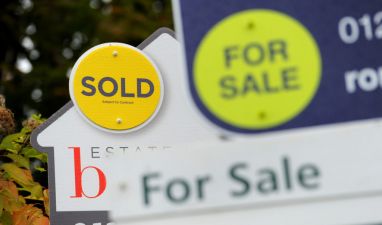Consumer prices rose by 5.5 per cent in the year to December, marking the largest annual change in prices in two decades according to the Central Statistics Office (CSO).
The rise in average prices between December 2020 and December 2021 was the largest annual change since a rise of 5.6 per cent was seen in April 2001.
The most notable change in prices was an 18 per cent increase in the cost of transport, along with an 11.8 per cent rise in housing, water, electricity, gas and other fuel costs.
Transport costs increased primarily due to higher prices for diesel, petrol and motor cars, along with an increase in airfares.
Housing, water, electricity, gas and other fuel costs rose mainly due to higher rents and mortgage interest repayments, along with an increase in the cost of electricity, home heating oil and gas.
Monthly inflation
Consumer prices in December alone increased by 0.5 per cent in the month, marking the fourteenth month of inflation in a row. During December of last year, prices rose by 0.3 per cent by comparison.
The most significant monthly price changes were a 2.9 per cent rise in transport costs, fuelled by higher airfares, and a 1.4 per cent rise in furnishings, household equipment and routine household maintenance costs.

The latter increase was primarily due to higher rents and mortgage interest repayments and an increase in the cost of electricity and gas. This increase was partially offset by lower prices for home heating oil.
In December there was meanwhile a decrease of 2.1 per cent in average prices associated with alcoholic beverages and tobacco, due to lower prices for drinks sold in supermarkets and off licences.
A 0.9 per cent decrease in the average cost of clothing and footwear was attributed to sales.
The rise in the cost of living comes as residential property prices rose by 14 per cent in the 12 months to November 2021.







